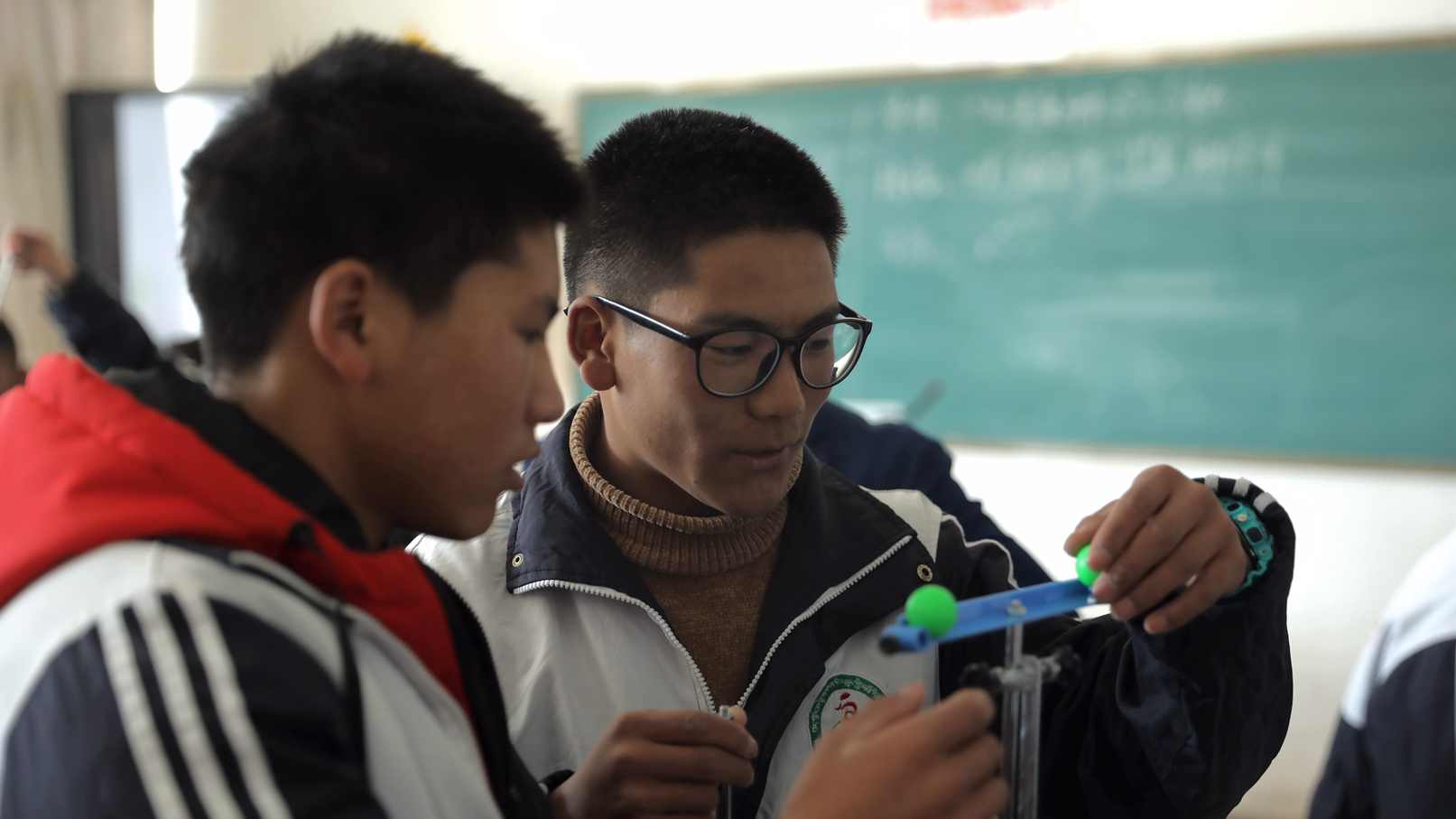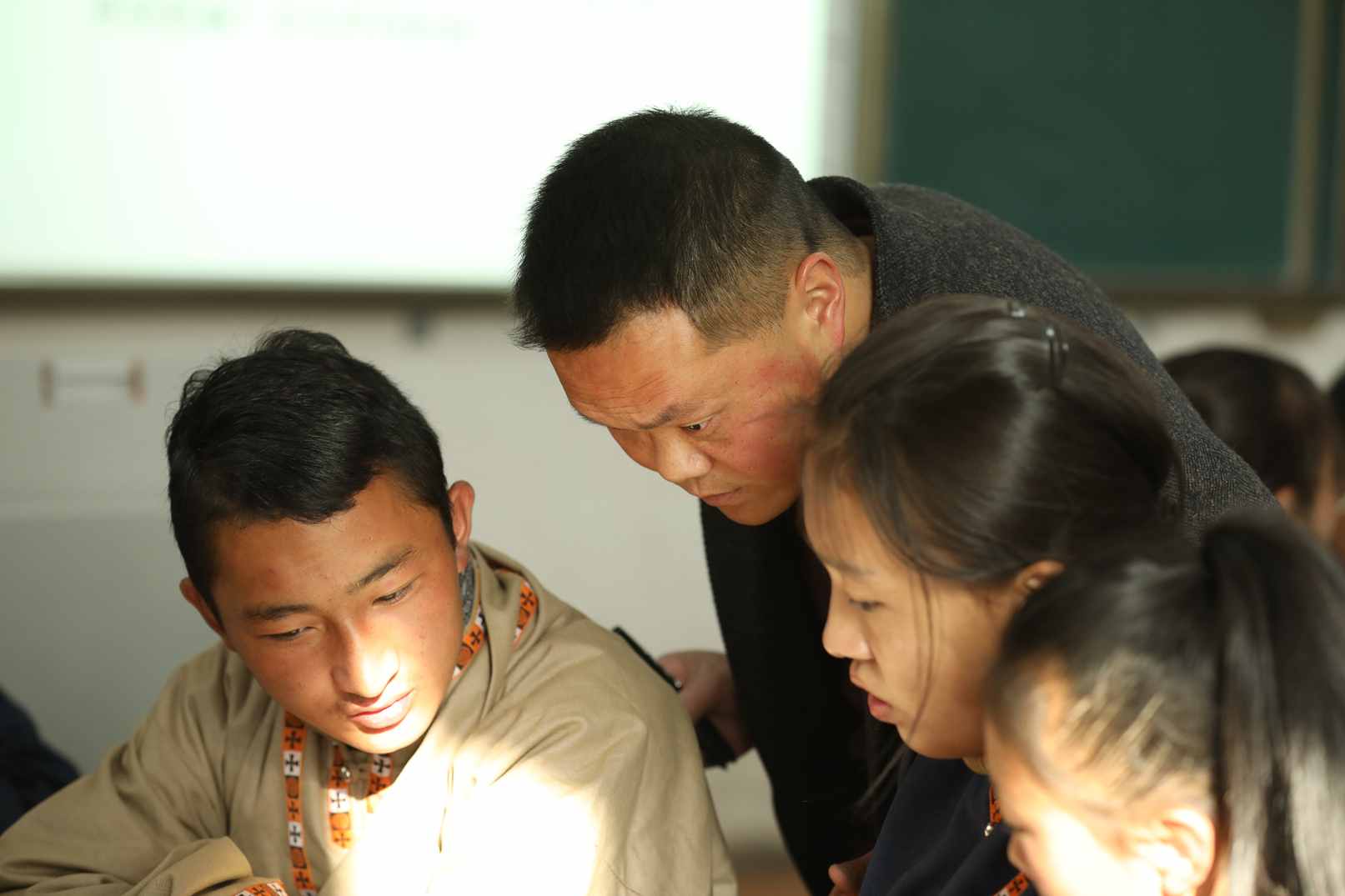
Culture China
21:41, 27-Mar-2019
Teaching in Tibet: China rolls out changes in education
Updated
22:49, 27-Mar-2019
By Jonathan Betz
02:45

Tibet is undergoing incredible changes – especially in its schools. China's been overhauling education in Tibet, saying it wants to improve the chances of the region's 600,000 students. Part of that approach means moving kids from rural villages to bigger cities.
For Jayangludrup, going to class has taken him far from home. The 17-year-old attends a government boarding school – 1,400 kilometers away from his village – and everything he's ever known.
His dream is to become a doctor. He says there are not many doctors or Tibetan language teachers in Tibet, so he hopes to contribute to his hometown.

A teacher from northwest China's Shaanxi province is seen in class with Tibetan students. /CGTN Photo
A teacher from northwest China's Shaanxi province is seen in class with Tibetan students. /CGTN Photo
Next year, China plans to close his village's high school, part of the government's effort to encourage rural students attend boarding schools – all expenses paid – in the regional capital.
Some 1,600 students, all from a western Tibet district called Ali, attend this sprawling high school. There are three other campuses just like it, and officials plan to build at least two more.
Administrators insist the bigger cities offer a better education. Zheng Jiangang, deputy headmaster of Ali Senior High School, says that Ali is a remote area and to live there is really very difficult, let alone study.
The school is a mix of two distinct cultures. To help Tibetan students become more competitive and integrated with their peers of the Han ethnic group, officials are bringing in staff from across the country to teach in Mandarin.

Campus and building of Lhasa Ali Senior High School /CGTN Photo
Campus and building of Lhasa Ali Senior High School /CGTN Photo
Jiao Haijun, a teacher from northwest China's Shaanxi province, has been teaching at the school for three years. He says that basic knowledge of the local students is a bit weak. So the teaching methods are quite different and the teachers have to prepare more here in Lhasa.
It can be a huge adjustment for students, like Jayangludrup, who feels most comfortable speaking Tibetan.
He showed me around the dorm room he shares with six other boys. He doesn't have much, but what he treasures most is a rope sling his mother made, used to herd the sheep.
He doesn't even have a photo of his parents, but he admits they, and home, are never far from his mind.

SITEMAP
Copyright © 2018 CGTN. Beijing ICP prepared NO.16065310-3
Copyright © 2018 CGTN. Beijing ICP prepared NO.16065310-3